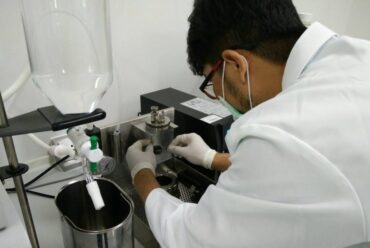Organic Fertilizer: Nurturing Your Garden the Natural Way
Gardening enthusiasts and environmentally conscious individuals have increasingly turned to organic methods for nurturing their plants. Organic fertilizer, in particular, has gained popularity as a sustainable alternative to synthetic fertilizers. In this article, we will explore the world of organic fertilizer and discover its benefits, types, applications, and much more.
What is Organic Fertilizer?
Organic fertilizer refers to natural substances derived from plant or animal sources that enrich the soil and provide essential nutrients to plants. Unlike synthetic fertilizers, organic fertilizers are free from harmful chemicals and additives. They work in harmony with nature, supporting healthy plant growth while promoting soil health and environmental sustainability.
Benefits of Organic Fertilizer
1. Environmentally Friendly
One of the primary advantages of organic fertilizer is its eco-friendliness. Organic fertilizers are made from renewable resources, reducing reliance on non-renewable fossil fuels. They have minimal impact on water sources, air quality, and overall environmental health. By choosing organic fertilizers, gardeners contribute to a greener and more sustainable future.
2. Improved Soil Health
Organic fertilizers enhance the soil structure, increasing its ability to retain water and nutrients. They promote the growth of beneficial microorganisms, earthworms, and other soil organisms. This, in turn, improves soil aeration, drainage, and nutrient availability, creating an ideal environment for plant roots to thrive.
3. Nutrient-Rich Plant Growth
Organic fertilizers provide a balanced mix of essential nutrients, including nitrogen, phosphorus, and potassium, as well as micronutrients. These nutrients are released slowly and steadily, ensuring a steady supply for plants’ growth and development. As a result, plants nurtured with organic fertilizer tend to have stronger root systems, healthier foliage, and higher resistance to pests and diseases.
Types of Organic Fertilizers
There are various types of organic fertilizers available, each with its unique composition and benefits. Let’s explore some popular options:
1. Compost
Compost is a dark, crumbly material obtained from decomposed organic matter, such as kitchen scraps, yard waste, and leaves. It enriches the soil with nutrients, improves its structure, and enhances microbial activity. Compost is suitable for a wide range of plants and can be made at home through composting.
2. Manure
Manure, derived from animal waste, is a rich source of organic matter and nutrients. It provides a slow-release supply of nitrogen, phosphorus, and potassium. However, it’s important to use well-rotted manure to prevent the risk of burning plants or introducing pathogens into the soil.
3. Bone Meal
Bone meal is made from ground animal bones and is an excellent source of phosphorus and calcium. It promotes root development and strengthens plants. Bone meal is particularly beneficial for flowering plants, bulbs, and fruits.
4. Fish Emulsion
Fish emulsion is created by breaking down fish waste and is a valuable source of nitrogen, phosphorus, and micronutrients. It is highly soluble and quickly absorbed by plants, making it an excellent choice for providing an immediate nutrient boost.
5. Seaweed and Kelp
Seaweed and kelp-based fertilizers offer a wide range of nutrients, including trace minerals, growth hormones, and beneficial plant compounds. They stimulate root growth, enhance plant resistance to stress, and improve overall plant health.
How to Use Organic Fertilizer
1. Preparing the Soil
Before applying organic fertilizer, prepare the soil by removing weeds, loosening it with a garden fork or tiller, and incorporating organic matter. This helps improve soil structure and ensures better nutrient absorption.
2. Application Methods
Organic fertilizers can be applied in various ways, such as top-dressing, side-dressing, or incorporating them into the planting hole. Follow the specific instructions provided on the fertilizer packaging for the best results.
3. Timing and Frequency
Timing and frequency of organic fertilizer application depend on the specific needs of the plants and the type of fertilizer used. Generally, it is recommended to apply organic fertilizers at the beginning of the growing season and continue with regular applications throughout the growing period.
Tips for Choosing the Right Organic Fertilizer
When selecting organic fertilizers, consider the following factors:
1. Nutrient Content
Check the nutrient content of the fertilizer and ensure it matches the specific requirements of your plants. Different plants have different nutrient needs, so choose a fertilizer that provides the necessary elements in the right proportions.
2. Application Requirements
Some organic fertilizers require specific application techniques or conditions. For example, some fish emulsions need to be diluted before application. Read the instructions carefully and follow them to achieve optimal results.
3. Soil Testing
Conduct a soil test to determine the existing nutrient levels in your soil. This will help you identify any deficiencies and select an organic fertilizer that addresses those deficiencies effectively.
Common Misconceptions about Organic Fertilizers
1. Organic Fertilizers Are Slow-Acting
While it’s true that organic fertilizers release nutrients slowly, they provide a continuous supply over an extended period. This slow-release nature ensures a steady and sustainable source of nutrients for plants, promoting long-term growth and reducing the risk of nutrient leaching.
2. Organic Fertilizers Are Expensive
While the initial cost of organic fertilizers may be slightly higher compared to synthetic alternatives, their long-term benefits outweigh the expense. The improved soil health, reduced environmental impact, and healthier plants make organic fertilizers a cost-effective choice in the long run.
3. Organic Fertilizers Are Less Effective
Organic fertilizers may take longer to show results compared to synthetic fertilizers. However, their effectiveness lies in their ability to improve soil fertility, promote long-term plant health, and contribute to a sustainable ecosystem. Organic fertilizers work holistically, addressing the root causes of plant nutrition rather than providing quick-fix solutions.
Organic Fertilizer for Specific Plants
Different plants have varying nutrient requirements. Here are some recommendations for using organic fertilizers on specific types of plants:
1. Vegetables and Herbs
Vegetables and herbs benefit from balanced organic fertilizers that provide a mix of essential nutrients. Compost and well-rotted manure are excellent choices for these plants, ensuring healthy growth and bountiful harvests.
2. Fruits and Berries
Fruit-bearing plants require phosphorus-rich fertilizers to support flowering and fruit development. Bone meal and compost are ideal options for fruit trees, bushes, and vines.
3. Flowers and Ornamentals
Flowers and ornamental plants thrive with organic fertilizers that promote vibrant blooms and lush foliage. Fish emulsion and seaweed-based fertilizers are beneficial for these plants, enhancing their overall beauty and resilience.
Organic Fertilizer Recipes for DIY Enthusiasts
If you enjoy DIY projects, here are a few organic fertilizer recipes you can try at home:
1. Basic Compost Recipe
Ingredients:
- Kitchen scraps (fruit and vegetable peels, coffee grounds)
- Yard waste (leaves, grass clippings)
- Water
Instructions:
- Layer the kitchen scraps and yard waste in a compost bin or pile.
- Keep the pile moist by watering it occasionally.
- Turn the pile every few weeks to aid in decomposition.
- After several months, the compost will be ready to use in your garden.
2. Homemade Fish Emulsion
Ingredients:
- Fish waste (fish heads, bones, or scraps)
- Water
Instructions:
- Place the fish waste in a large container.
- Cover the fish waste with water, ensuring it is fully submerged.
- Let the mixture sit for several weeks, stirring occasionally.
- Strain the liquid to remove solids.
- Dilute the fish emulsion with water according to the package instructions.
- Use the diluted fish emulsion to water your plants.
3. Nutrient-Rich Plant Tea
Ingredients:
- Comfrey leaves or other nutrient-rich plant material
- Water
Instructions:
- Fill a bucket or large container with plant material.
- Add water to cover the plant material completely.
- Let the mixture steep for several days, stirring occasionally.
- Strain the liquid and dilute it with water.
- Use the nutrient-rich plant tea to water your plants.
Organic Fertilizer vs. Synthetic Fertilizer
1. Environmental Impact
Organic fertilizers have a minimal environmental impact compared to synthetic fertilizers. Synthetic fertilizers can leach into water sources, polluting rivers and lakes, and contributing to algal blooms. Organic fertilizers, on the other hand, promote soil health, prevent nutrient runoff, and support a diverse ecosystem.
2. Soil Health
Synthetic fertilizers provide quick and concentrated nutrient boosts, but they can negatively impact soil health over time. They may disrupt the balance of microorganisms in the soil and reduce its organic matter content. Organic fertilizers, with their slow-release nature and organic matter content, foster soil fertility, structure, and biodiversity.
3. Nutrient Availability
While synthetic fertilizers offer immediate nutrient availability to plants, organic fertilizers ensure a sustained and gradual release of nutrients. This slow-release feature reduces the risk of nutrient leaching and helps plants develop strong root systems, making them more resilient in the long run.
Organic fertilizers offer a natural and sustainable way to nurture your garden and promote healthy plant growth. With their numerous benefits, including environmental friendliness, improved soil health, and nutrient-rich plant growth, organic fertilizers have become a popular choice among gardeners worldwide. By incorporating organic fertilizers into your gardening routine, you can create a thriving garden while contributing to a greener and more sustainable future.







